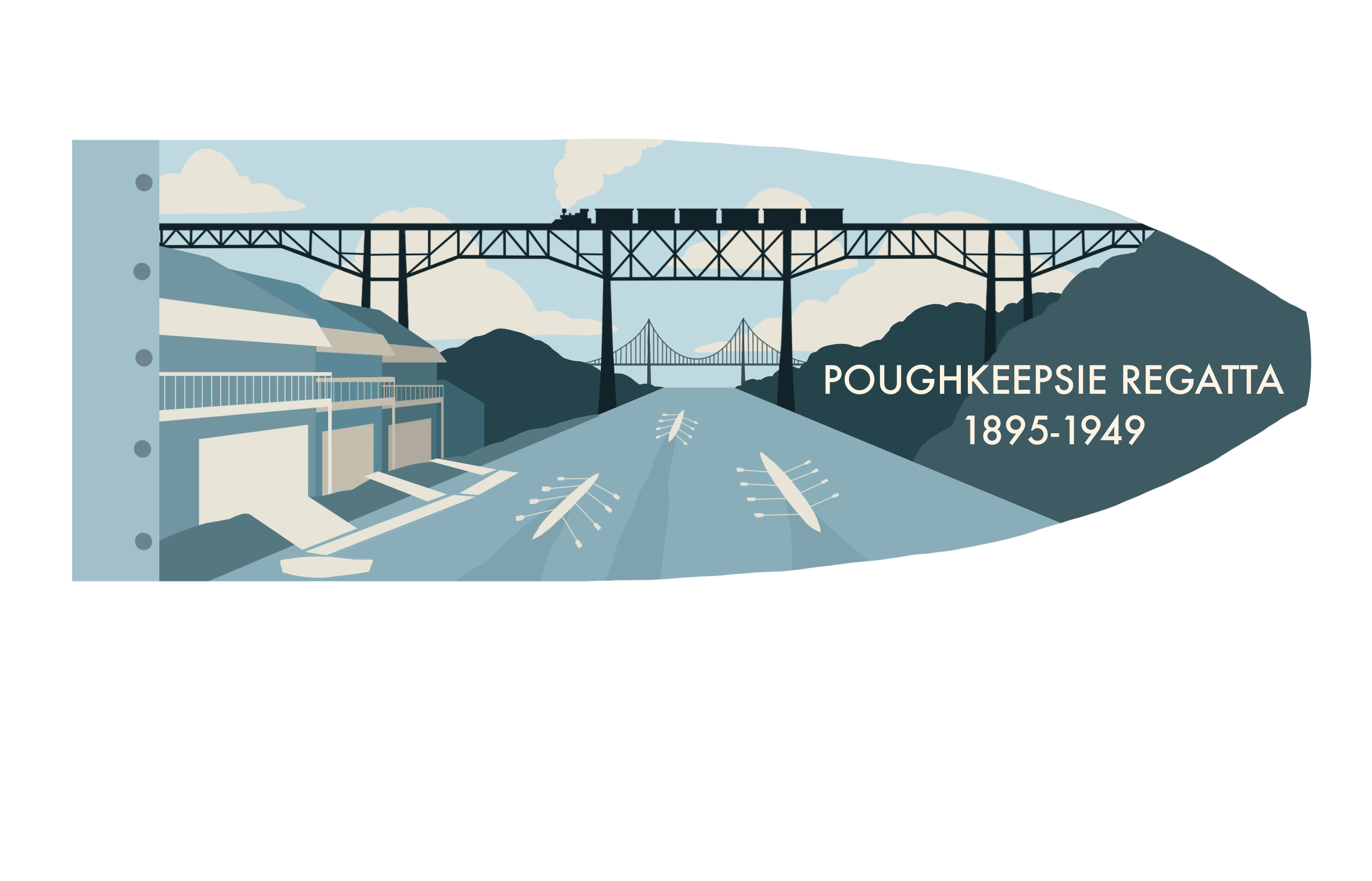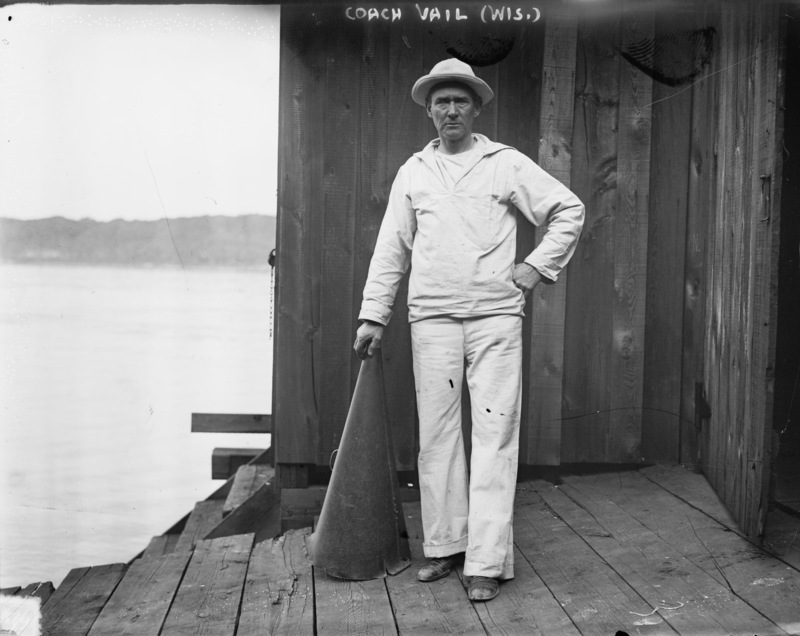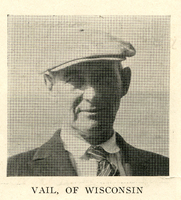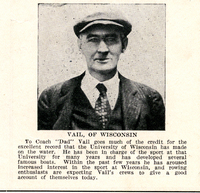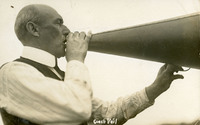Harry Emerson "Dad" Vail
Wisconsin's Crew Coach 1911-1928
Harry Emerson "Dad" Vail was a professional sculler originally from Canada who began his rowing career at the age of 15. In 1891, he entered Harvard University at the age of 30 where he rowed on the crew until 1893 when he served as captain. He rowed as a professional oarsman during this time and his career was at its peak in 1899. He was a contemporary and fellow competitor of James A. "Jim" Ten Eyck and Charles E. "Pop" Courtney.
Vail began his coaching career while he was still rowing, beginning with the Ariel Boat Club of Baltimore in 1889 (he continued coaching them during the club season through the 1900s). He is also credited with coaching the Baltimore Athletic Club to victory at the Saratoga Regatta in 1896. At various points he also coached the Neptune Rowing Club of St. John's in Canada, Georgetown Prep, the Vesper Boat Club of Philadelphia, and the Newell Boat Club at Harvard.
In 1911, the University of Wisconsin offered Vail the coach position after Edward H. "Ned" Ten Eyck's departure and Edwin R. Sweetland turned it down. Vail introduced the Wray stroke, which he learned while at Harvard, to the Wisconsin crew that year. His methods had an immediate impact on the Wisconsin crew who won a race against the Minnesota Boat Club on Lake Mendota by 2 lengths using this new style. They also set a 4 mile record on Lake Mendota. While the crew was ready for competition at Poughkeepsie, they were beset by bad luck upon arrival. Many crew members got sick with various ailments and a member of the freshman crew had to be substituted for a varsity crew member and ultimately, this crew finished second to last. In 1912, Vail had better luck with the varsity finishing second at Poughkeepsie.
Despite improvements in the crews, Wisconsin voted to discontinue competition in intercollegiate rowing in 1914. This decision was made based upon the health of two rowers who had competed at Poughkeepsie. University of Wisconsin medical faculty belived that the four mile and two mile contests were too strenuous for the university's oarsmen, who did not have adequate time on the water before the races to "reach the level of conditioning necessary" (Taylor). This was part of a larger controversy over the length of the Poughkeepsie and Harvard-Yale races during this time and Wisconsin was not alone in pulling out of intercollegiate rowing, both Princeton and Navy refrained.
Vail did very little coaching for the next six years, but thankfully interest in rowing at Wisconsin continued to remain strong with intramural crew as a popular sport. 1922 saw a resurgence in crew races rowing first the Winnipeg Boat Club and then the University of Washington. Finally in 1924, the Badgers returned to rowing at Poughkeepsie and finished second to Washington.
In 1928, Vail became ill and was unable to train the crews much of the time and ultimately, Wisconsin did not participate at Poughkeepsie. As the year went on, Vail's illness worsened and he passed away October 8, 1928 at the age of 69. He was the oldest crew coach in America at the time of his death as well as being one of the last living professional rowers turned coaches.
Vail made a huge impact on his rowers who remembered him fondly recalling his sense of humor and ability to motivate his crews. He was also a deeply religious man who did not allow his crews to row on Sunday while at Poughkeepsie. Vail was memoralized with not just a trophy, but in a rowing association and regatta named for him. Russell "Rusty" Callow and Lev Brett established the Dad Vail Trophy to foster competition among schools struggling to start rowing programs or not yet ready to compete against larger programs. This trophy began the foundation of the Dad Vail Rowing Association that holds an annual regatta on the Schyllkill River in Philadelphia in Vail's honor. The Dad Vail Rowing Association seeks "to perpetuate the 'Dad' Vail tradition, foster and encourage intercollegiate rowing among colleges new to the sport, and promote schedules for member schools."
Sources about Vail:
Wisconsin Where They Row: A History of Varsity Rowing at the University of Wisconsin by Bradley F. Taylor
The Dad Vail Story by U.T. Bradley
